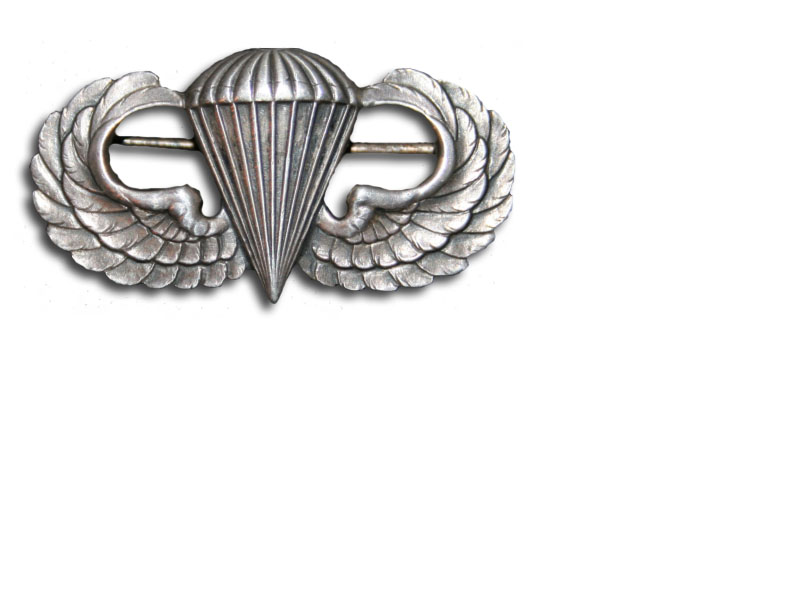US Army Parachute Badge
The first Parachute badge was designed during World War II by Captain (later Lieutenant General) William P. Yarborough of the 501st Parachute Battalion. His mission was the procurement of a suitable parachutist badge with would meet with the approval both of the War Department and the Commanding Officer of the 501st Parachute Battalion. He got full authority to approve from Major Miley (commander of the 501st) and the Chief of Infantry. After the approve of the sketch there expired in the near future 350 badges, procured from the Bailey, Banks & Biddle Company in Philadelphia, in the hands of the Commanding Officer of the 501st Parachute Battalion by March 14, 1941.
Description:
An oxidized silver badge 1 13/64 inches in height and 1 1/2 inches in width, consisting of an open parachute on and over a pair of stylized wings displayed and curving inward.
Symbolism: the wings suggest flight and, together with the open parachute, symbolize individual proficiency and parachute qualifications.
Criteria:
Awarded to any individual who has satisfactorily completed the prescribed proficiency tests while assigned or attached to an airborne unit or the Airborne Department of the Infantry School; or participated in at least one combat parachute jump.
Stars representing participation in combat jumps had been worn unofficially on parachute wings during and after World War II. The small stars are superimposed on the appropriate badge to indicate combat jumps as follows:
One combat jump : A bronze star centered on the shroud lines 3/16 inch below the canopy.
Two combat jumps : A bronze star on the base of each wing.
Three combat jumps : A bronze star on the base of each wing and one star centred on the shroud lines 3/16 inch below the canopy.
Four combat jumps : Two bronze stars on the base of each wing.
Five combat jumps : A gold star centred on the shroud lines 5/16 inch below the canopy.
The Parachutist Badge was formally approved on 10 March 1941. Stars representing participation in combat jumps had been worn unofficially on parachute wings during and after World War II until they were approved by Headquarters, Department of the Army on December 14, 1983.

Sources
- Photo: Wilco Vermeer
- - US Army Quartermaste Corps
























